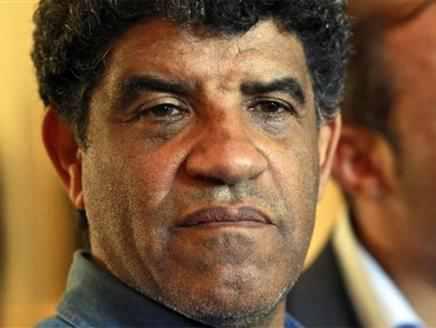By Tom Westcott.

Tripoli, 20 April 2013:
Abdullah Al-Senussi, Qaddafi’s cousin and former spy-chief, has still not seen a lawyer despite having spent . . .[restrict]nearly eight months in a Libyan jail, according to Human Rights Watch (HRW).
“I asked for a lawyer on the second or third day after my arrival here in Libya,” Senussi told HRW on the international NGO’s prison visit last week, adding: “I haven’t seen or spoken with a lawyer yet.”
The visit to the Hadba Correction Facility in Tripoli – a newly-renovated jail which is holding several senior Qaddafi-era officials – was arranged by Justice Minister Saleh Marghani. Senussi has been held there since his extradition from Mauritania in September 2012.
HRW Researcher for Libya, Hanan Salah, who made the visit, told the Libya Herald that HRW had requested a visit soon after Senussi was extradited. She said, however, that “it took some months to agree on the modalities of the visit, as we requested to see him in private without the presence of a guard.”
Senussi said that he has repeatedly requested access to a lawyer in monthly judicial reviews of his detention.
Justice Minister Marghani told HRW: “Senussi has the right to a defence lawyer of his choice like any other person standing trial.” He said that so far no Libyan lawyer had taken on the case.
The acting head of the Hadba facility, Mohamed Gweider, told HRW that it would probably be difficult to find a Libyan lawyer to represent Senussi. However, Marghani said that Senussi could be represented by a foreign lawyer with permission to practice in Libya.
“Libya’s wish to put the people they hold responsible for gross human rights violations on trial is fully understandable,” said Middle East and North Africa director at HRW, Sarah Leah Whitson. “But to achieve true justice, they need to give Senussi the rights that the previous government denied Libyans for so long. To start with, that means making sure he can consult a lawyer.”
HRW pointed out that prompt access – within 48 hours of arrest – to a lawyer for all defendants is required under international standards, including the International Covenant on Civil and Political Rights, the African Charter on Human and Peoples’ Rights, and the United Nations Basic Principles on the Role of Lawyers.
“The Libyan government should immediately ensure that Senussi has full access to a lawyer of his own choosing, whether a Libyan lawyer or one from abroad,” HRW said. If Senussi failed to appoint his own lawyer, it added, a government-appointed lawyer should be provided.
HRW said that the Libyan government should also inform Senussi of the charges he faces in Libya.
It is understood that the Libyan authorities have accused Senussi of serious crimes carried out under the old regime, including involvement in the 1996 Abu Salim prison massacre, during which some 1,200 prisoners were killed. Formal charges, however, have yet to be brought against him, despite his being detained for over seven months.
Senussi, who is being held in a three by four-metre cell, told HRW that his treatment has been “reasonable.” Two further complaints he raised during the 30-minute private meeting were that he was not allowed to leave his cell for exercise and that he was granted only limited family visits.
He said he had only received one visit, from his daughter Unood, who is being detained at the Al-Ruwaimi jail in Ain Zara, facing trial for having entered the country on a forged passport.
Gweider confirmed that several family visits had been denied on security grounds, explaining that this was a major issue at the Hadba facility.
“There is always the fear that we could be targeted because of whom we’re safeguarding,” he said, “we are exposed to danger at all times.”
Gweider has subsequently said that Senussi would be allowed to exercise in the open air for an hour each day.
Marghani told HRW: “Libya is committed to provide a fair trial.” He added that Libyan law states that: “No trial should take place without the presence of a defence lawyer.” [/restrict]







